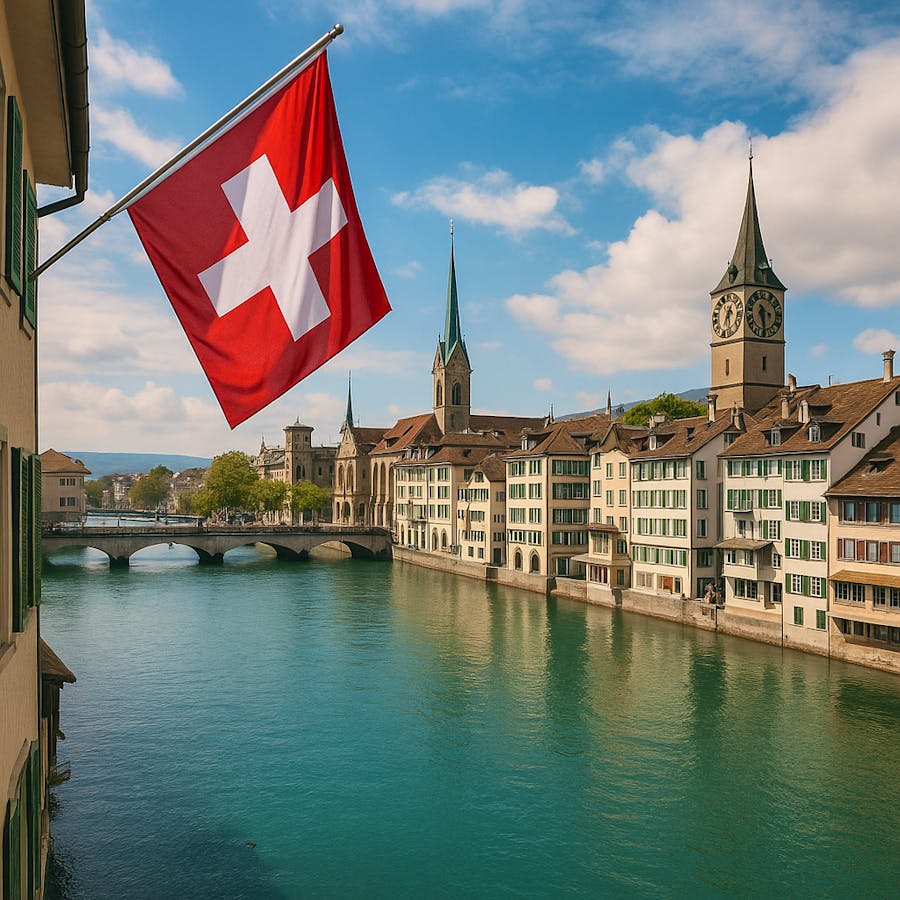How to watch Women’s EURO 2025 | Viewing guide & key info
Europe’s biggest stage is set, ready for new legends to rise…

This summer, Europe’s best players and sides will go head-to-head for continental glory.
Expect fierce rivalries, stunning goals, and footballing moments that will live on in the annals of history.
Here’s everything you need to know about how to watch Women’s EURO 2025, plus more key information for the tournament.
How to watch Women’s EURO 2025
The good news for football fans in England is that if you want to keep up with our brilliant defending champions, all games of the tournament will be available to watch live for free on BBC and ITV.
The pair will share the broadcasting rights throughout the tournament, with the majority of days split between the two – if there’s two games on in one day, generally one will be on ITV and one will be on BBC, but that isn’t always the case. They will also both be showing the Final simultaneously.
When it comes to the more specific viewing methods, obviously you’ll be able to watch on the standard BBC and ITV channels (either ITV 1 or ITV 2, and BBC 1 and BBC 2).
If you’re looking to watch on the go instead or want to watch on a different device, you can view the games via the pairs’ streaming apps, BBC iPlayer and ITVX. Both are available to download for free on various devices, such as:
- Smart TV & Smart TV devices (Amazon Fire Stick etc.)
- Console (Xbox & PlayStation
- Computer/Laptop
- Mobile
- Tablet
For all Wales matches, they’ll also be available to watch on S4C, the premiere Welsh-language channel.
Where is the Women’s EURO 2025?

The 14th edition of the Women’s EUROs is being hosted by Switzerland. This is the first time the nation has hosted the Women’s EUROs – and any major international women’s tournament, for that matter.
It is also only the third time they have hosted a major international football tournament across both the men’s and women’s game.
The other two occasions were the 2008 men’s EUROs (shared hosting duties with Austria), and the 1954 men’s World Cup.
When does the Women’s EURO 2025 start?
Women’s EURO 2025 will get underway on Wednesday 2nd July, with hosts Switzerland featuring on the opening day.
When is the Women’s EURO 2025 Final?
The tournament will be played throughout July, starting on the second and culminating with the Final on Sunday 27th July at St. Jakob-Park in Basel, the largest stadium in the country.
Women’s EURO 2025: Venues
Speaking of stadiums, let’s take a look at the eight venues which will play host to the matches:
Stadium Name | Location | Capacity |
| St. Jakob-Park | Basel | 34,250 |
| Stadion Wankdorf | Bern | 29,800 |
| Stade de Genève | Geneva | 26,750 |
| Stadion Letzigrund | Zürich | 22,700 |
| Arena St. Gallen | St. Gallen | 16,300 |
| Allmend Stadion Luzern | Lucerne | 14,350 |
| Arena Thun | Thun | 8,100 |
| Stade de Tourbillon | Sion | 7,750 |
Capacity figures taken from official UEFA website.
Women’s EURO 2025: Dates
As mentioned, the tournament will begin on Wednesday 2nd July and end on Sunday 27th July.
Within those roughly three-and-a-half weeks of action awaits four rounds, starting with the Group Stage followed by three knockout rounds.
The Group Stage will consist of three games for each team. The knockout rounds will feature the Quarter-finals, Semi-finals and the Final.
Here are the dates for each round of the tournament:
Group Stage: Wednesday 2nd - Sunday 13th July
Quarter-finals: Wednesday 16th - Saturday 19th July
Semi-finals: Tuesday 22nd & Wednesday 23rd July
Final: Sunday 27th July
Women’s EURO 2025: Teams
Women’s EURO 2025 will be the third edition of the tournament to feature 16 teams, having increased from 12 during the 2017 edition.
51 of the 55 total UEFA nations applied for the qualification process,
The 16 teams who qualified for the tournament are:
- Switzerland (Hosts, automatic qualification)
- England
- Germany
- Spain
- France
- Italy
- Netherlands
- Iceland
- Norway
- Sweden
- Denmark
- Portugal
- Finland
- Poland
- Wales
- Belgium
Women’s EURO 2025: Tables
As mentioned above, the tournament is composed of 16 teams, so the Group Stage which starts everything splits them up into four groups of four. The groups are as followed:
Group A | |||||
Team | Wins | Draws | Losses | Goal Difference | Points |
| Switzerland | 0 | 0 | 0 | 0 | 0 |
| Norway | 0 | 0 | 0 | 0 | 0 |
| Iceland | 0 | 0 | 0 | 0 | 0 |
| Finland | 0 | 0 | 0 | 0 | 0 |
Group B | |||||
Team | Wins | Draws | Losses | Goal Difference | Points |
| Spain | 0 | 0 | 0 | 0 | 0 |
| Portugal | 0 | 0 | 0 | 0 | 0 |
| Belgium | 0 | 0 | 0 | 0 | 0 |
| Italy | 0 | 0 | 0 | 0 | 0 |
Group C | |||||
Team | Wins | Draws | Losses | Goal Difference | Points |
| Germany | 0 | 0 | 0 | 0 | 0 |
| Poland | 0 | 0 | 0 | 0 | 0 |
| Denmark | 0 | 0 | 0 | 0 | 0 |
| Sweden | 0 | 0 | 0 | 0 | 0 |
Group D | |||||
Team | Wins | Draws | Losses | Goal Difference | Points |
| France | 0 | 0 | 0 | 0 | 0 |
| England | 0 | 0 | 0 | 0 | 0 |
| Wales | 0 | 0 | 0 | 0 | 0 |
| Netherlands | 0 | 0 | 0 | 0 | 0 |
As standard, the top two sides will advance to the knockout stage. In the event that two teams are tied on points for one place in the knockout stage, the tiebreaker will look at the two’s head-to-head matchup first. If there was a winner, then they will go through. If it was a draw, then it will be decided on goal difference.
We will aim to keep the tables updated as often as possible.
Women’s EURO 2025: Fixtures
So far, the only known fixtures are for the Group Stage games. Here is the full list of said fixtures (all times in BST):
Wednesday, 2nd July
- 5pm – Iceland vs Finland
Arena Thun, Thun
ITV / ITVX
- 8pm – Switzerland vs Norway
St. Jakob-Park, Basel
BBC One / BBC iPlayer
Thursday, 3rd July
- 5pm – Belgium vs Italy
Stade de Tourbillon, Sion
BBC Two / BBC iPlayer
- 8pm – Spain vs Portugal
Stadion Wankdorf, Bern
ITV / ITVX
Friday, 4th July
- 5pm – Denmark vs Sweden
Stade de Genève, Geneva
ITV / ITVX
- 8pm – Germany vs Poland
Arena St. Gallen, St. Gallen
ITV / ITVX
Saturday, 5th July
- 5pm – Wales vs Netherlands
Allmend Stadion Luzern, Lucerne
BBC One / S4C / BBC iPlayer
- 8pm – France vs England
Stadion Letzigrund, Zurich
ITV1 / ITVX
Sunday, 6th July
- 5pm – Norway vs Finland
Stade de Tourbillon, Sion
BBC Two / BBC iPlayer
- 8pm – Switzerland vs Iceland
Stadion Wankdorf, Bern
ITV (TBC) / ITVX
Monday, 7th July
- 5pm – Spain vs Belgium
Arena Thun, Thun
ITV (TBC) / ITVX
- 8pm – Portugal vs Italy
Stade de Genève, Geneva
ITV (TBC) / ITVX
Tuesday, 8th July
- 5pm – Germany vs Denmark
St. Jakob-Park, Basel
BBC Two / BBC iPlayer
- 8pm – Poland vs Sweden
Allmend Stadion Luzern, Lucerne
BBC One / BBC iPlayer
Wednesday, 9th July
- 5pm – England vs Netherlands
Stadion Letzigrund, Zurich
BBC One / BBC iPlayer
- 8pm – France vs Wales
Arena St. Gallen, St. Gallen
ITV (TBC) / S4C / ITVX
Thursday, 10th July
- 8pm – Finland vs Switzerland
Stade de Genève, Geneva
BBC One / BBC iPlayer
- 8pm – Norway vs Iceland
Arena Thun, Thun
BBC iPlayer
Friday, 11th July
- 8pm – Italy vs Spain
Stadion Wankdorf, Bern
BBC One / BBC iPlayer
- 8pm – Portugal vs Belgium
Stade de Tourbillon, Sion
BBC iPlayer
Saturday, 12th July
- 8pm – Sweden vs Germany
Stadion Letzigrund, Zurich
ITV (TBC) / ITVX
- 8pm – Poland vs Denmark
Allmend Stadion Luzern, Lucerne
ITV (TBC) / ITVX
Sunday, 13th July
- 8pm – Netherlands vs France
St. Jakob-Park, Basel
ITV (TBC) / ITVX
- 8pm – England vs Wales
Arena St. Gallen, St. Gallen
ITV1 / S4C / ITVX
Women’s EURO 2025: Knockout rounds
The fixtures for the knockout rounds will obviously be revealed when teams qualify from their groups, but as of now we know how the matchups will be setup. Here are the dates and matchups for the knockout rounds:
Quarter-finals
Wednesday, 16th July (QF 1)
- 8pm – Winner Group A vs Runner-Up Group B
Stade de Geneve, Geneva
TBC
Thursday, 17th July (QF 2)
- 8pm – Winner Group C vs Runner-Up Group D
Stadion Letzigrund, Zurich
TBC
Friday, 18th July (QF 3)
- 8pm – Winner Group B vs Runner-Up Group A
Stadion Wankdorf, Bern
TBC
Saturday, 19th July (QF 4)
- 8pm – Winner Group D vs Runner-Up Group C
St. Jakob-Park, Basel
TBC
Semi-finals
Tuesday, 22nd July (SF 1)
- 8pm – Winner QF 3 vs Winner QF 1
Stade de Geneve, Geneva
TBC
Wednesday, 23rd July (SF 2)
- 8pm – Winner QF 4 vs Winner QF 2
Stadion Letzigrund, Zurich
TBC
Final
Sunday, 27th July
- 5pm – Winner SF 1 vs Winner SF 2
St. Jakob-Park, Basel
BBC One / BBC iPlayer / ITV1 / ITVX
Women’s EURO history
The first official Women’s EUROs tournament was held in 1984, although under a different name – the European Competition for Representative Women’s Teams. Only four teams participated in the inaugural event, and Sweden were crowned the inaugural champions after beating England in a two-legged final decided by penalties.
The next tournament took place three years later in 1987. The Women’s EUROs actually predates the Women’s World Cup, so when it first started and for the first few editions, it was held every two years as it was the premiere women’s international competition.
In 1991, UEFA formally renamed the competition the UEFA Women’s Championship, to align it more closely with the men’s format. The 1993 edition was the last to feature only four teams, as the tournament began to evolve in both size and stature.
Growth and German dominance
The mid-90s through the 2000s saw the tournament expand to 8 teams, with rising interest from media and fans being the reason for the expansion.
During this era, Germany emerged as the dominant force, winning six consecutive titles from 1995 to 2013. Their technical skill, depth, and professional infrastructure set a standard for others to chase. They also dominated on the world stage during this time, winning two World Cups from three finals made (2003 & 2007, runners-up in 1995).
During this time, the tournament size expanded again, briefly having 12 teams compete during the 2009 and 2013 editions.
It was also at this time that the tournament changed to match that of the other international tournaments in terms of years scheduled, changing to every four years after the 1997 edition.
Modern era
The 2017 edition marked a turning point as the competition expanded again – this time to 16 teams – reflecting the rapid development of women’s football across Europe.
The Netherlands, the hosts of the expanded 2017 edition, won their first-ever title in a thrilling campaign that captured the hearts of fans worldwide.
In the most recent complete tournament to date (2022), the tournament reached it’s highest heights yet, with England hosting and ultimately winning the trophy in a dramatic extra-time victory over Germany at Wembley Stadium.
It was the Lionesses’ first major international title, the first for the England side since the men’s 1966 World Cup triumph, which coincidentally also came on home soil.
More importantly for the women’s game as a whole, the final broke attendance records, with 87,192 fans in the stadium – the highest ever for a EURO final, men’s or women’s.
Women’s EURO winners
In the 14 editions of the tournament, there has been only five unique winners, thanks to Germany’s long spell of domination.
- 1984 – Sweden
- 1987 – Norway
- 1989 – Germany (West Germany)
- 1991 – Germany
- 1993 – Norway
- 1995 – Germany
- 1997 – Germany
- 2001 – Germany
- 2005 – Germany
- 2009 – Germany
- 2013 – Germany
- 2017 – Netherlands
- 2022 – England
Women’s EURO records
Team
- Most titles: 8 – Germany/West Germany
- Most Finals appearances: 9 – Germany/West Germany
- Most goals scored (single tournament): 22 – England (2022)
- Most goals scored (single Group Stage): 14 – England (2022)
- Fewest goals conceded (single Group Stage): 0 – England (2022) & Germany (2005 & 2022)
- Biggest margin of victory: England 8-0 Norway (2022 Group Stage)
- Biggest margin of victory (knockout rounds): Sweden 5-0 Iceland (2013 Quarter-finals)
- Biggest margin of victory (Final): Germany 6-2 England (2009)
Player
- Top scorer (all-time): 10 – Inka Grings (Germany) & Birgit Prinz (Germany)
- Top scorer (single tournament): 6 – Inka Grings (2009), Beth Mead & Alexandra Popp (2022)
- Most goals scored in a match: 4 – Marianne Pettersen (Norway, 1997)
- Most appearances: 23 – Birgit Prinz (Germany)
- Youngest player: 16 years 156 days – Oksana Yakovyshyn (Ukraine) vs Netherlands, 2009)
- Youngest goalscorer: 16 years 351 days – Isabell Herlovsen (Norways) vs France, 2005
- Oldest player: 39 years 340 days – Sandrine Soubeyrand (France) vs Denmark, 2013
- Oldest goalscorer: 37 years 33 days – Julie Nelson (Northern Ireland) vs Norway, 2022















